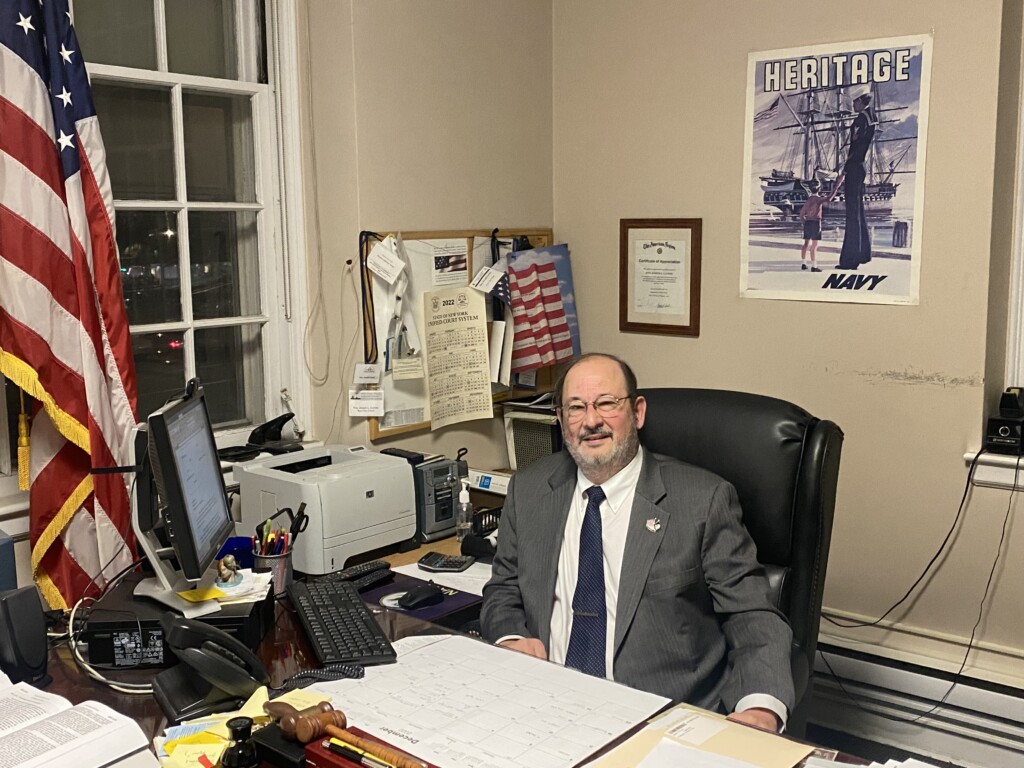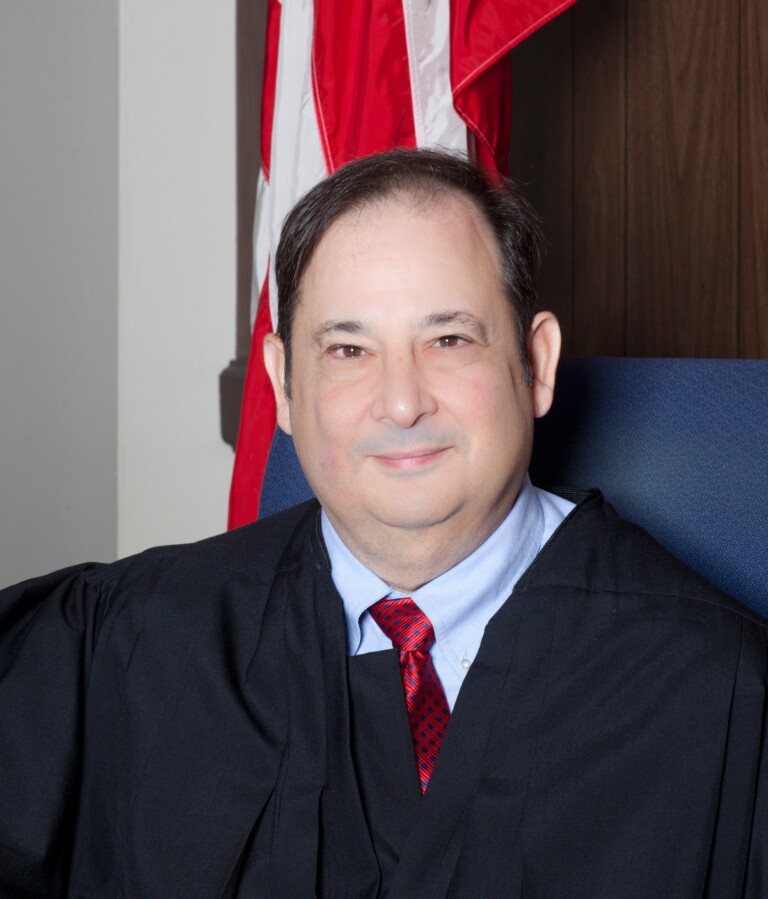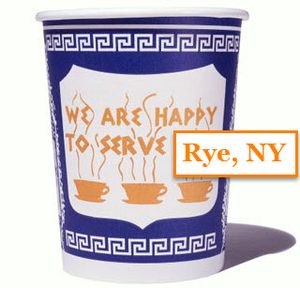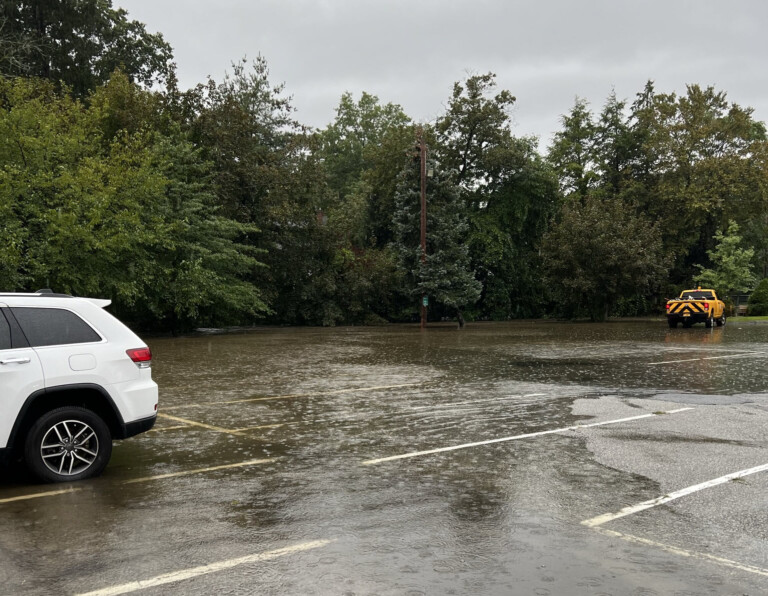Holding Court: Is the DA Going Soft on Drunk Drivers?

Holding Court is a series by retired Rye City Court Judge Joe Latwin. Latwin retired from the court in December 2022 after thirteen years of service to the City.
What topics do you want addressed by Judge Latwin? Tell us.
By Joe Latwin
On October 23, 2021, a young man was stopped by State Troopers. He was tested for DWI and later arrested and arraigned on charges of Aggravated Driving While Intoxicated (VTL 1192-2aa) for having a blood alcohol level of .18 or more (the legal limit is .08), and stopping in a public roadway. The District Attorney later conveyed an offer to accept a plea of plain DWI with Probation and 100 hours of Community Service. The case was adjourned several times on the consent of the parties until November 29, 2022.
The DA, after extensive negotiations with the defendant, then offered to accept a plea to Criminal Mischief in the Fourth degree (a non- DWI charge) with Probation. A plea to a non-DWI charge would mean that if the defendant had another DWI charge within ten years, it would not be upgraded to a felony. The reason offered by the parties was that the defendant was a DACA eligible person.
DACA is Deferred Action on Childhood Arrivals – an immigration policy, not passed by Congress. A U.S. District Court enjoined the DACA program and that decision was affirmed by the U.S. Circuit Court of Appeals. To be DACA eligible, a person must have been under the age of 31 as of June 15, 2012. You must also be at least 15 years or older to request DACA status.
A DWI conviction, whether by plea or trial would have subjected the defendant to deportation from the U.S. Since Criminal Mischief is not a DWI charge, deportation was ruled out. Complicating the situation is VTL 1192(10) that limits plea bargaining in DWI cases. In any case wherein a VTL 1192 (2) is charged, any plea of guilty thereafter entered in satisfaction of such charge must include at least plea of guilty to the violation of the provisions of VTL 1192, and no other disposition by plea of guilty to any other charge in satisfaction of such charge shall be authorized; provided, however, if the district attorney, upon reviewing the available evidence, determines that the charge of a violation of this section is not warranted, such district attorney may consent, and the court may allow a disposition by plea of guilty to another charge in satisfaction of such charge; provided, however, in all such cases, the court shall set forth upon the record the basis for such disposition.
Judge Livingston indicated that she would not agree to the proposed plea since it was not motivated by any review of the available evidence, but rather simply by the defendant’s DACA status. Unable to convince Judge Livingston that she could not reject the plea agreement, the defendant sought to go judge shopping and asked that the case be transferred to another local Court.
This was not the only way to resolve this case. If the District Attorney felt she didn’t have enough evidence to convict this defendant of a DWI charge, she could have dismissed the charges without the consent of the judge. – but she chose not to. She could have scheduled the case for trial and not produced sufficient testimony to sustain the charges, leaving the judge no choice but to dismiss the charges. She could have not completed the required discovery and let the speedy trial time run out leading to dismissal – but she didn’t. Instead, in collaboration with the defendant, she chose to push for a non-DWI disposition.
This creates three severe problems. First, it discriminates against not only U.S. Citizens, but also against non DACA eligible aliens. Every DWI defendant will now seek a non-DWI disposition as offered to the DACA eligible and, if they don’t receive it claim discrimination based on national origin. It also undermines VTL 1192(10)’s prohibition on taking non-DWI pleas to satisfy DWI charges in direct contravention of the Legislature’s express statute.
Lastly, people who would have been convicted of a DWI charge but had it reduced to a non-DWI charge won’t have a later DWI charge elevated to a felony due to the prior DWI conviction. What will the DA say to the family of a child killed by a drunk driver who got a charged reduced because they were DACA eligible?
This simply isn’t the was to protect DACA eligible people from deportation. If the law is draconian, have the law changed. Until the law is changed, follow it. Prosecute those who violate it if you have a good case, or dismiss it if you don’t.






